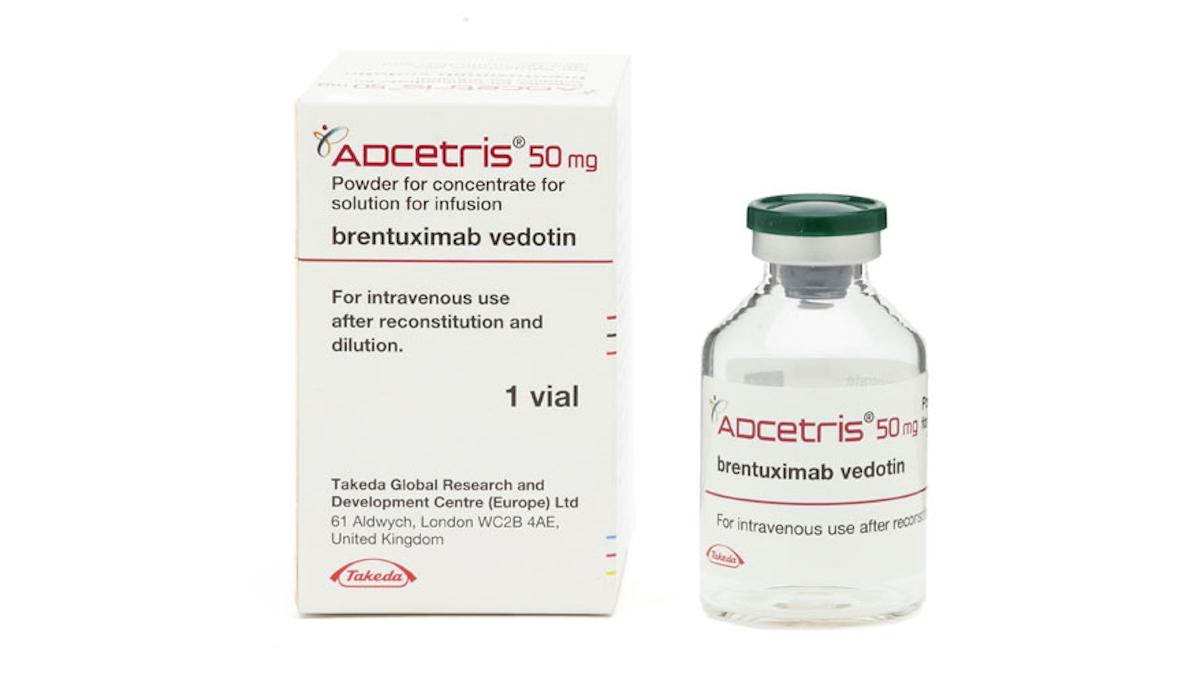First drug backed for NHS use in untreated Hodgkin lymphoma

Takeda's Adcetris has become the first drug recommended for routine NHS use as a treatment for previously untreated late-stage classical Hodgkin lymphoma, making it an option for around 800 people a year.
Cost-effectiveness watchdog NICE has backed the use of the antibody-drug conjugate (ADC) as a combination regimen with doxorubicin, dacarbazine, and vinblastine (AVD) chemotherapy for patients with stage 3 or 4 CD30-positive Hodgkin lymphoma in final draft guidance published this morning.
The decision stems from data from the phase 3 ECHELON-1 trial, which showed that Adcetris plus AVD showed an improvement in overall survival (OS) at six years compared to AVD plus bleomycin with a more manageable tolerability profile. Bleomycin is sometimes removed from the regimen because of its toxic effects for some people.
OS came in at 93.9% in the Adcetris plus AVD arm of the study, compared to 89.4% for AVD plus bleomycin, while two-year progression-free survival (PFS) was 82.1% and 77.2%, respectively.
NICE said that its decision follows an improved confidential discount to the NHS on Adcetris' list price by Takeda. Helen Knight, director of medicines evaluation at the agency, said that having an alternative to chemotherapy on its own "is particularly important for these patients, many of whom may have been told that there is no further effective treatment available to them."
The guidance means that Adcetris will be available immediately through the Cancer Drugs Fund, with interim funding provided until routine commissioning begins, likely in May. The new indication for the drug is also being reviewed by the SMC in Scotland, according to Takeda.
Professor Graham Collins, a consultant haematologist at Oxford University Hospitals NHS Foundation Trust, said that the guidance represents "a major advance in the frontline management of Hodgkin lymphoma for our patients."
He added: "By addressing an important clinical need, this recommendation facilitates access to this frontline treatment regimen, providing hope and broader treatment options to advance care for our patients."
The decision for patients in England and Wales has been welcomed by patient organisation Lymphoma Action UK. "Although current treatment options are usually successful, they can have a significant physical and emotional impact on patients, making them unsuitable for some," commented the charity's director of services Dallas Pounds.
"We are excited that NICE has recommended another treatment, which will provide hope and improved outcomes for patients facing challenges with current treatments."











